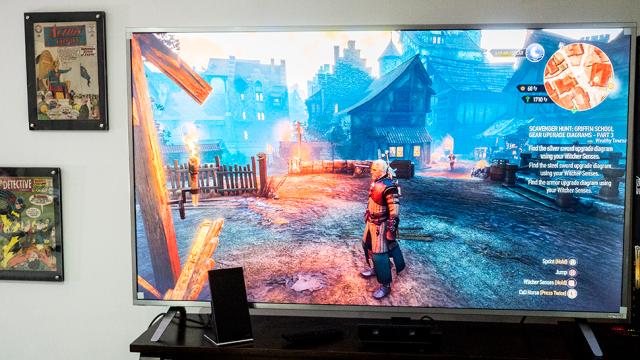The US Federal Trade Commission announced yesterday that it has reached a settlement with Vizio, which it alleged misled customers about what data its smart TVs were collecting. Vizio agreed to pay $US2.2 million ($2.8 million) in penalties, including $US1.5 million ($1.9 million) to the FTC and $US1 million ($1.3 million) to the New Jersey Division of Consumer Affairs, with $US300,000 ($391,827) suspended.
The lawsuit centred on Vizio’s “Smart Interactivity” feature, which the company said “enables program offers and suggestions”. That sounds great! I love offers and suggestions, as do my friends and family!
But that wasn’t really what was happening. According to the complaint, Vizio began tracking consumers’ data in February 2014, on both new and old TVs. The “Smart Interactivity” feature was a cover for a technology called ACR, which tracks viewing data “second-by-second”, while the TV settings offered no explanation about what that feature was actually doing.
The biggest privacy concern surrounding this practice is that the tracked data included IP addresses. This information, passed through a “data aggregator”, enabled advertisers to track your behaviour across devices, which in turn allowed advertisers to see, for example, “whether a consumer ha[d] viewed a particular television program following exposure to an online advertisement for that program”.
According to the complaint, Vizio began sharing the data for audience measurement purposes in May 2014, and began selling targeted advertising data in March 2016. The FTC says that at the time, the company bragged that the technology “captures up to 100 billion data points each day from more than 10 million VIZIO televisions”.
The FTC’s problem here wasn’t the tracking in itself, which is legal with consent. Vizio’s smart TVs aren’t the only ones that track user data — in fact, it was reported in 2015 that Samsung’s privacy policy allowed it to record and share audio recordings from its Voice Recognition feature with advertisers. But Samsung provided more obvious disclosures about the information it was collecting and sharing.
Vizio, meanwhile, didn’t inform consumers it was collecting the data and didn’t offer any explanation of what it was collecting. TVs that were purchased after August 2014 displayed no notification at all that the tracking was enabled, and TVs that were updated in 2014 received a notification that didn’t tell consumers what Smart Interactivity was actually doing, just that it was enabled and could be disabled through settings. The notification disappeared after 30 seconds on screen.
[referenced url=”https://gizmodo.com.au/2015/02/samsungs-smart-tv-privacy-policy-raises-accusations-of-digital-spying/” thumb=”http://i.kinja-img.com/gawker-media/image/upload/t_ku-large/dckiksbsuyomwbs1paqs.png” title=”Samsung’s Smart TV Privacy Policy Raises Accusations Of Digital Spying, So What’s The Deal?” excerpt=”It all started with a small, tucked away sentence in Samsung’s SmartTV security policy. The head-scratching string of words was pointed out by a Redditor on last week, and has since sent websites and experts in debate over smart TV privacy, with opinions ranging from “so what” to quoted text from 1984.”]
In a statement, Vizio said it was now “leading the way” on getting consumer consent for data collection:
Even before today’s resolution was announced, VIZIO had addressed the concerns by updating online and onscreen disclosures. For example, the FTC Complaint acknowledged that VIZIO has sent onscreen notifications informing users about viewing data collection, reminding users of the option to turn this feature off or on, and educating users about the purpose and nature of its viewing data program.
While the court order requires Vizio to delete all data collected prior to March 2016, it doesn’t require them to stop tracking data — just to more adequately get consent for doing so. So don’t expect smart TVs to stop at least trying to track your Real Housewives binging any time soon.
